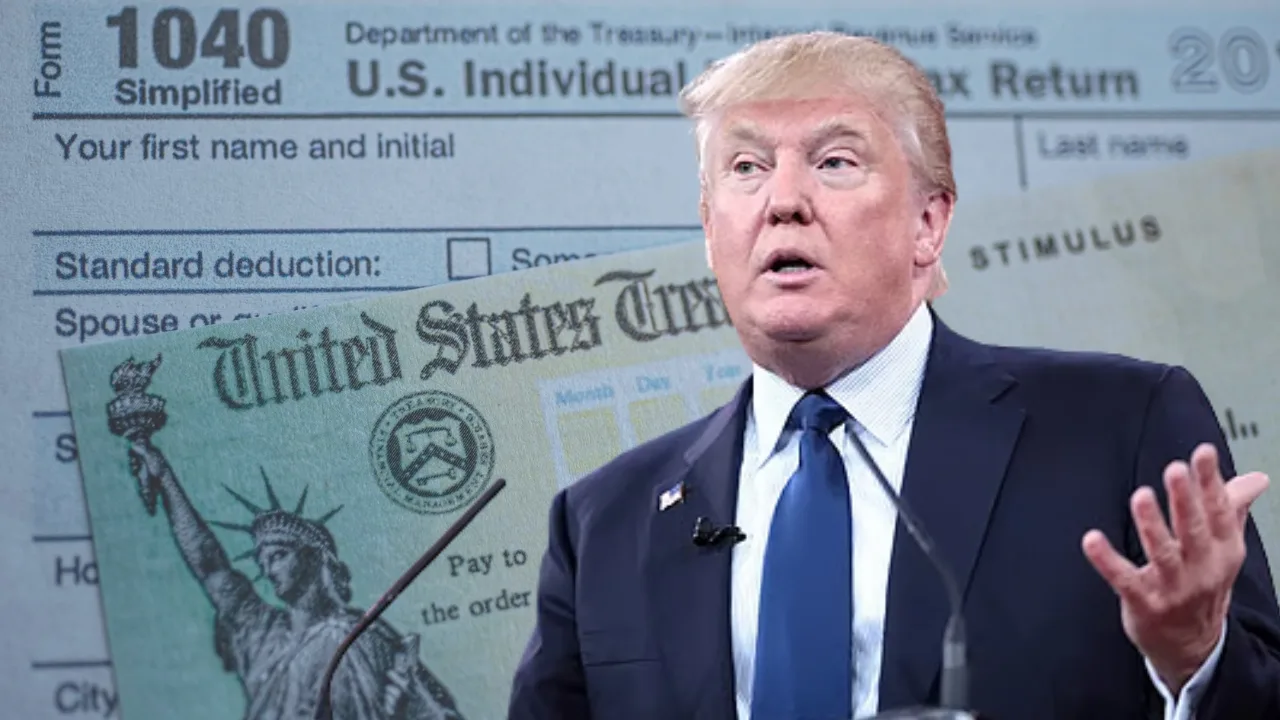As November 2025 begins, social media and online posts are once again filled with claims that the U.S. government will issue new stimulus checks or “IRS direct deposit relief payments.” Some even mention a new “Tariff Dividend” proposed by Donald J. Trump — suggesting that citizens could soon receive direct payments funded by import tariffs.
But what’s true, and what’s not?
Let’s break down the facts, expert insights, and official positions.
Stimulus Payment November 2025
Following the financial stress of recent years, Americans have been highly alert to any talk of new relief or stimulus programs. Viral videos and posts across Facebook, TikTok, and YouTube are claiming that the IRS will deposit checks in November 2025.
However, according to financial experts and official agencies, no federal law or program currently supports such payments. The Internal Revenue Service (IRS) has not confirmed any new checks, and Congress has not approved any stimulus bill for 2025.
“As of now, there’s no new Economic Impact Payment or relief initiative authorized by Congress,” explains Dr. Susan Fields, a policy analyst at the Center for Fiscal Research. “Any claims about a November 2025 stimulus are purely speculative or misleading.”
IRS Stimulus Payments November 2025
| Category | Current Status (as of November 2025) |
|---|---|
| Federal Stimulus Bill | No new bill approved |
| IRS Direct Deposit Relief | No confirmed payment or rollout |
| Tariff Dividend Proposal | Proposed, not enacted |
| State-Level Relief | Varies by state (check official sites) |
| Scams and Misinformation | Rising significantly on social media |
IRS Direct Deposit Relief Payment: The Reality
The phrase “IRS Direct Deposit Relief Payment” is one of the most common scams trending this year. Many Americans have received messages or seen posts claiming that a new IRS-backed direct deposit is being issued automatically.
Here’s what’s really happening:
- In 2024–2025, the IRS did issue Recovery Rebate Credits to taxpayers who hadn’t claimed them for prior stimulus rounds.
- This was not a new payment, but rather a completion of past entitlements.
- Currently, no new federal relief deposits are scheduled or approved for 2025.
“People should be extremely cautious,” warns IRS spokesperson Daniel Werth. “If you receive an email or text saying ‘You have a payment pending from the IRS,’ it’s almost certainly a scam.”
How to Verify IRS Communications?
| Check | What You Should Know |
|---|---|
| IRS Contact Method | The IRS never initiates contact by email, SMS, or social media. |
| Payment Updates | Always check IRS.gov or the Get My Payment tool (if active). |
| Scam Indicators | Requests for personal data, banking info, or SSN are red flags. |
The “Tariff Dividend” Explained
A growing topic in political discussions is the proposed “Tariff Dividend” — a plan that suggests giving U.S. citizens direct payments from import duty revenues.
Key points about this proposal:
- The concept was introduced by Senator Josh Hawley and promoted by Donald Trump.
- Trump claimed the plan could provide “$2000 or more per person, especially for low-income Americans.”
- However, Congress has not passed or approved any such plan.
- Analysts say tariff revenues are too limited to fund a national dividend.
“Even if tariff revenues increased dramatically, they would cover only a fraction of what’s promised in those viral posts,” says Dr. Alan Wright, senior economist at Georgetown University.
Tariff Dividend at a Glance
| Aspect | Details |
|---|---|
| Type | Proposed federal program |
| Source of Funds | U.S. import tariffs |
| Estimated Payment | Claimed $2000 per person (not verified) |
| Legislative Status | Not approved |
| Implementation Date | None |
Why Are These Rumors Spreading So Fast?
Several factors explain why such misinformation spreads rapidly:
- Past Precedents: COVID-era stimulus checks created lasting expectations among citizens.
- Social Media Virality: Clickbait headlines and AI-generated videos amplify false news.
- Scam Operations: Fraudsters exploit financial insecurity to steal personal data.
- State Relief Confusion: States like California, New York, and Alaska run their own rebate programs, often mistaken as federal payments.
“Misinformation thrives when hope meets uncertainty,” notes financial advisor Maria Chen. “That’s why official verification is the safest first step.”
What Should You Do to Stay Safe?
Here are key safety measures every citizen should follow:
- Do not share personal data in response to any message about “IRS payments.”
- Verify claims through official IRS channels or major news outlets.
- Be cautious of links directing you to “claim your check” websites.
- Check state websites for legitimate local relief programs.
- Avoid financial decisions based on unverified information.
Impact Analysis: Why It Matters?
The spread of false stimulus information has broader consequences:
- Financial Risk: Citizens may lose money or data to scammers.
- Public Distrust: Fake news erodes confidence in federal institutions.
- Policy Confusion: False claims distract from genuine reform discussions, like Social Security or tax relief measures.
“Every rumor that circulates undermines public faith in real policy work,” says economist Robert Kilmer.
“The best defense is verified knowledge.”
Final Words
As of November 2025, there are no approved stimulus checks, IRS direct deposit relief payments, or tariff dividend payouts. While proposals exist, none have reached the stage of legislative authorization.
Citizens are urged to remain alert, verify information through official government channels, and report suspicious messages or emails. The IRS will always announce such programs publicly through its official platforms if any future relief payments are approved.
FAQs
Will there be a new stimulus check in November 2025?
No. There is no federal law or official confirmation of any new stimulus payment for November 2025.
Is the IRS sending out direct deposit relief payments this year?
No. The IRS has confirmed that no new relief deposits are being sent in 2025.
What is the “Tariff Dividend” proposal?
It’s a suggested plan to give Americans payments funded by import duties, but it has not been enacted.
Are any states issuing local relief payments?
Yes, some states may have their own rebate programs. Check your state’s official website for details.
How can I confirm if an IRS message is real?
The IRS never initiates contact by text, email, or phone. Always verify on IRS.gov.

